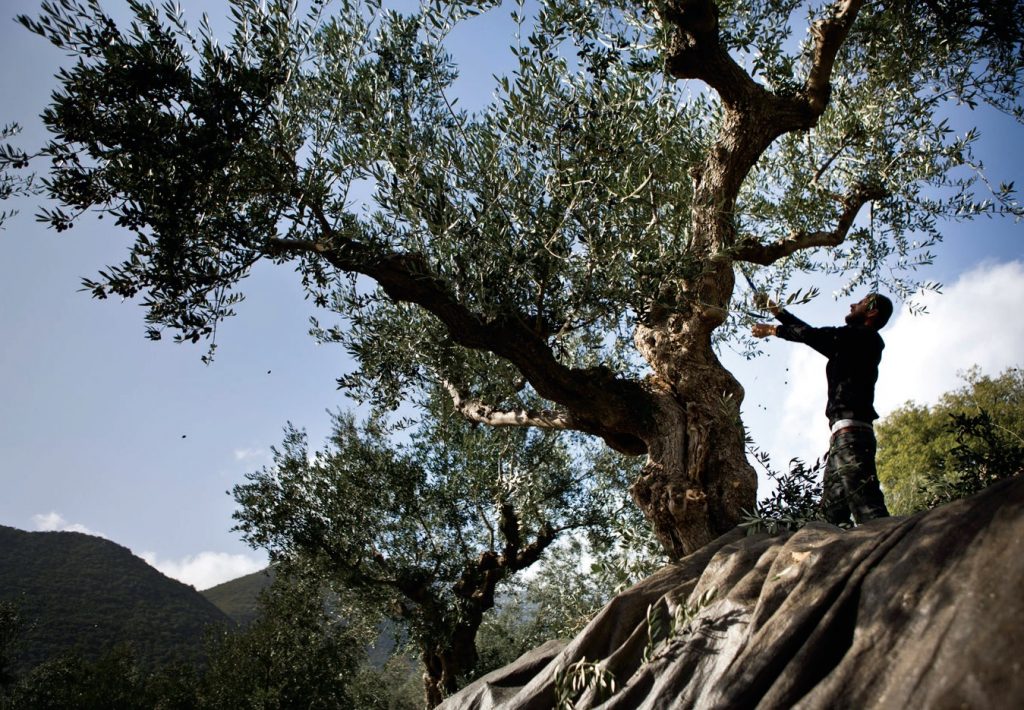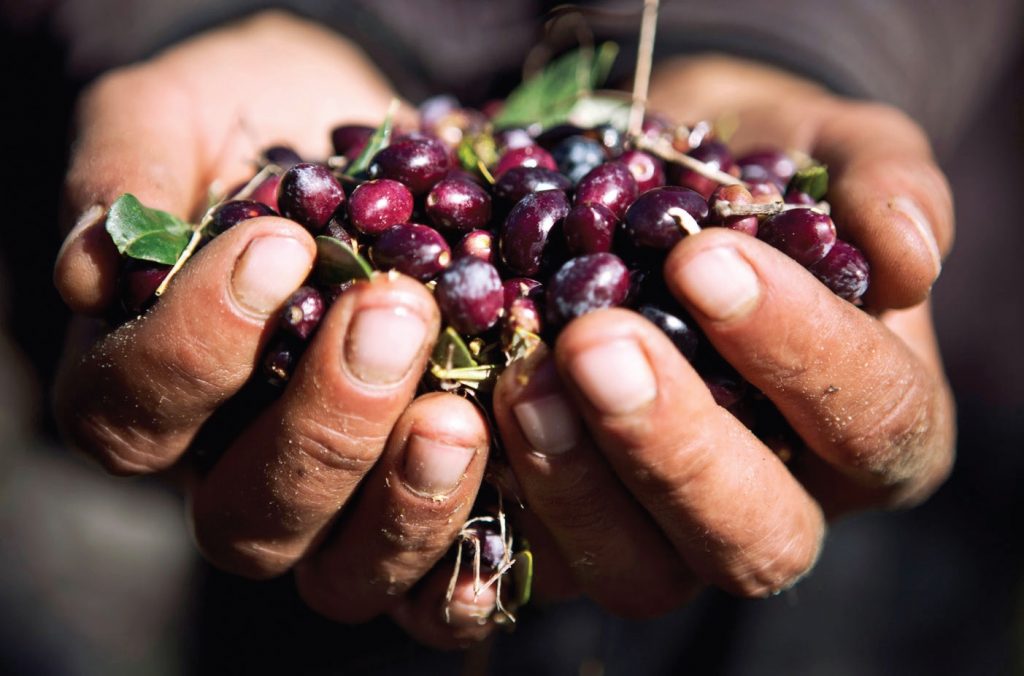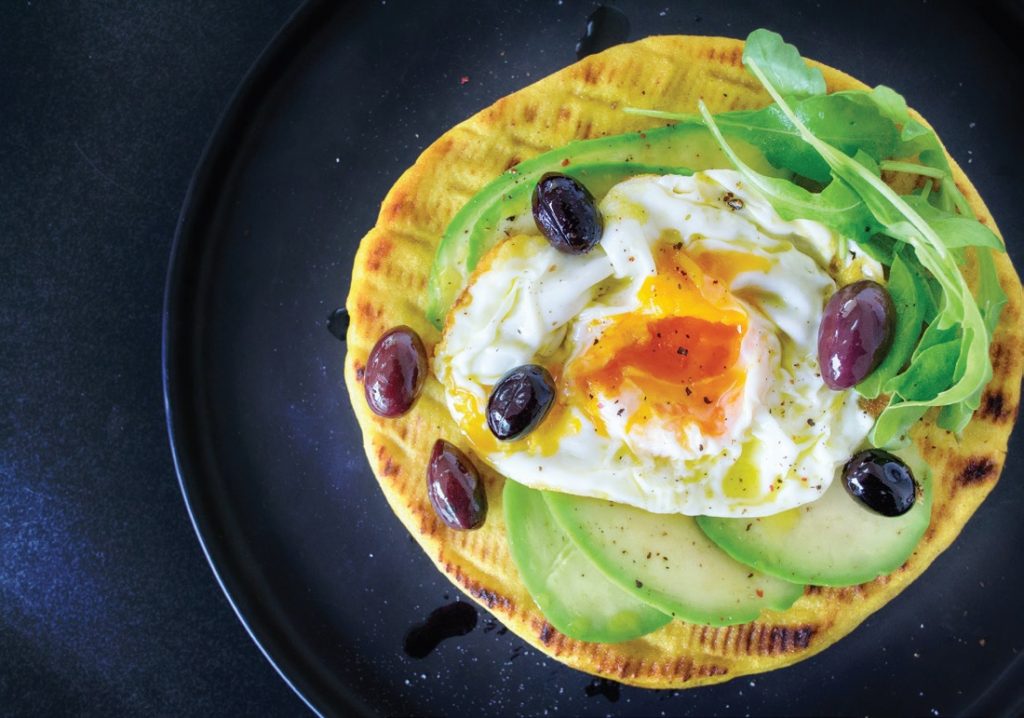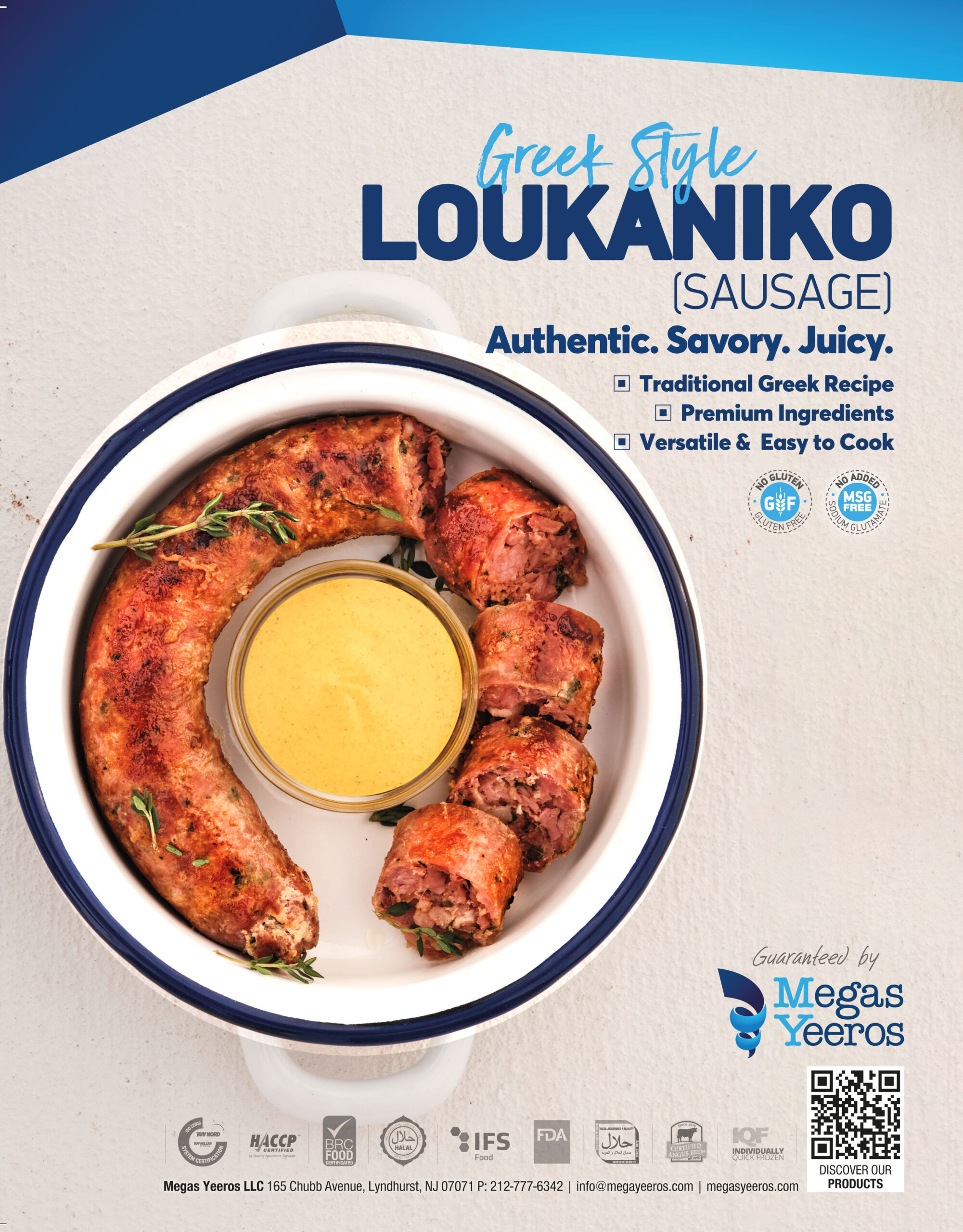Olive Oil
Posted by estiator at 10 October, at 04 : 03 AM Print
COVER STORY
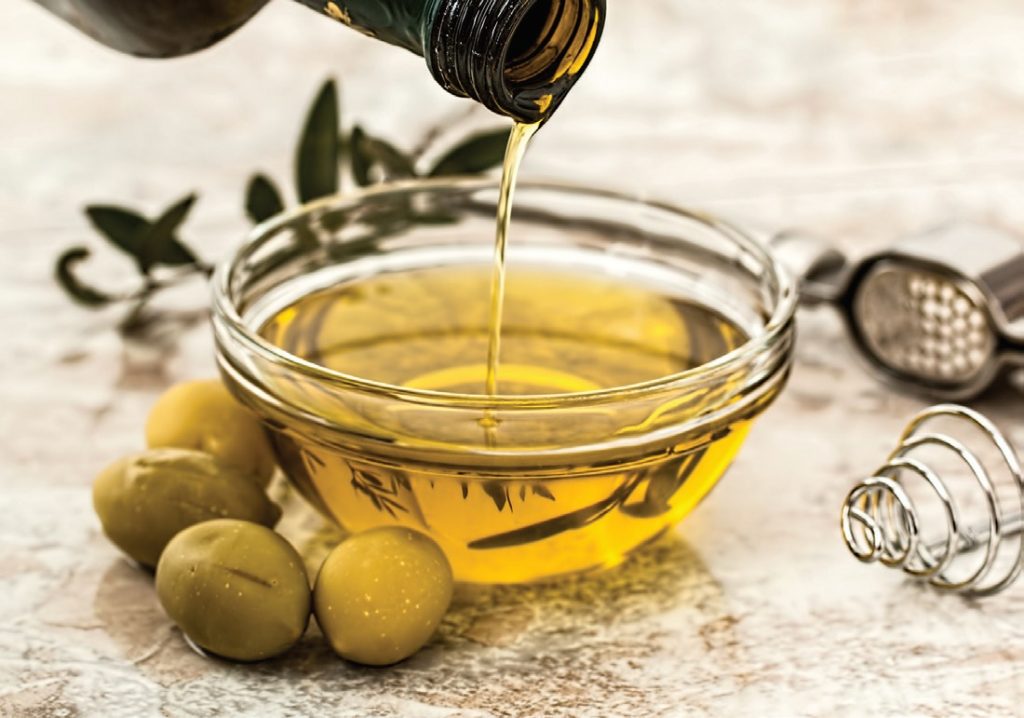
Have You Tasted My Village’s Olive Oil?
A host of small producers are turning their oil into liquid gold.
By Constantine Kolitsas
and Michael Kaminer
FOR GENERATIONS, we Greek-Americans have known that nothing produced anywhere else in the world can compare with the quality of Greek olive oil. We knew that most Spanish and Italian oils sourced many of their blends from Greek olive farmers for pennies on the dollar. And for decades we shouted from the rooftops for our voices to be heard on the subject. More recently, however, we’ve been heard, with American consumers awakening to the immense difference between Greek olive oil and the bulk stuff that’s pitched in supermarkets.
The rise of the Food Network and the copycat shows it’s spawned across the spectrum of cable channels has helped. With great chefs embracing olive oil from areas like Laconia, Messinia and Crete, it’s becoming a culinary faux pax to use anything but Greek olive oil.
And because olive oil production is ubiquitous across all of Greece, it stands to reason that savvy Greek-Americans are helping their overseas cousins to export, package, and brand their “liquid gold” to the best boutique markets in the world.
Estiator visited a handful of Greek-American companies that are at different stages of production, distribution, and branding Greek olive oil. Some of those stories follow….
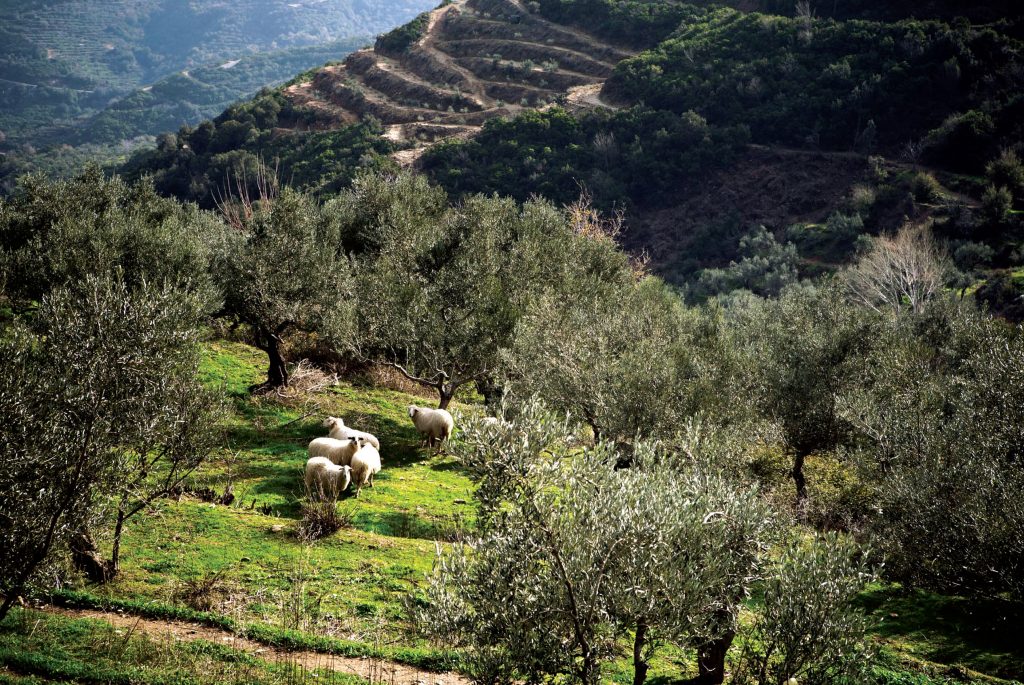
KASTANIA
As a boy, Tommy Agriodimas would spend much of his Greek summer vacations working his papou’s olive groves, which has shaped his lifelong love and respect for olive oil production. In his teen years, he would plead with his father to find a way to import the oil but was always met with challenges: His father wasn’t an importer and he didn’t know how to breach the logistical barriers. As an adult, the idea continued to nag at him. Bringing a personal supply of olive oil home from his father’s village every year, a friend who was the chef at the Hudson Hotel on Manhattan’s west side tasted it and convinced him to start importing it. “This is the best olive oil I’ve ever tasted,” he told him, insisting that Agriodimas bring him enough to supply the restaurant. With a commitment to purchase exclusively from him, Agriodimas made the investment to bring in a large quantity to satisfy the restaurant’s needs for a full year. A few months into the operation, however, the chef changed jobs and the orders stopped. Agriodimas was stuck with most of the oil, so he bottled it, labeled it, and peddled it around the neighborhood. The head chef of Luxury Box suites at Yankee Stadium purchased the rest of his inventory, and he was able to recoup his expenses.
For many, this would be the end of the dream of becoming an olive oil importer. But years later, when his wife’s cousin, David Lagakos, approached him about trying it again, the dream was reawakened. “My wife’s brother in law Michael Baptista joined us, and the entire family chipped in,” says Agriodimas. His boyhood dream dovetailed into Lagakos’ plans and became a family business. Kastania Olive Oil, named for the village where the families have roots, came about after the unexpected death of Lagakos’ father, Stephen Lagakos, a first generation Greek-American and a professor of bio statistics in the school of public health at Harvard University. Creating a brand around the village that his father cherished was, says Agriodimas, Lagakos’ way of honoring his father’s memory.
Kastania is nestled in the mountains of Laconia, arguably the finest olive-producing region of Greece. The village hovers above the plain that is home to the ancient (and contemporary) city of Sparta on one side and the seaside town of Gytheio on the other. Crowing the mountain is the Church of Panagia Giatrissa, with Kastania being the highest village on the road before reaching the church.
The olive oil in the Kastania bottles is produced from the communal presses in the village of Kastania, a common practice in Greece, where agricultural production has a communal structure to it, particularly in the final stages.
“The initial goal was to help the people in the local community to realize a better profit from their olive oil production,” says Agriodimas. For decades, the locals had accepted lowball prices from the foreign companies that would purchase Greek oil to blend it with olive oil from Spain and Italy. By targeting sales direct-to-consumer, Agriodimas and his partners can purchase the olive oil at a small premium while still making a profit for themselves. After all, we’re talking about some of the best olive oil produced in the world.
LIOKAREAS
Peter Liokareas used to build things for a living. Now he crushes them.
Luckily, it’s olives that he’s crushing. And his Pittsburgh-based olive-oil company, Liokareas Olive Oil, is crushing it in the marketplace, where his products have won more than 33 international awards since making their debut just six years ago.
“We’re a completely turnkey company, and we’re involved in every step of the process,” says Liokareas, who had worked for his father’s Pittsburgh construction company before launching Liokareas Olive Oil with cousin-in-law Michael Dudek. “We pick the olives, crush them, run the press, make and bottle the olive oil. Other companies are producers or bottlers or distributors. We control the whole process, down to handing the bottle to customers.”

The roots of Liokareas’ family farms on Greece’s Mani Peninsula stretch back generations. His great-grandfather started an olive orchard in 1850. The farmland has passed through the family to Liokareas himself. “We’re a young company, but we really started with my great-great-grandfather in 1850,” he says jokingly.
Innovation has also helped Liokareas Olive Oil raise its profile in a crowded market. Its line includes flavored olive oils in varieties like lemon, oregano, and orange. “We use a cold-fusion process for many of our extra-virgin olive oils, which is a different approach from most producers,” he says. Most flavored oils simply take an extract and infuse it into the olive oil, Liakareas explains. “But we’re taking real lemons picked from our own trees, and oranges from our own farms, and crushing them together with our olives. They go through the press, which creates a more refreshing and natural flavor.”
Private-label olive oil brands generated about $385.8 million in 2018, according to the Statista web site; the olive oil market totals more than $2 billion. “When we started, it was more challenging to educate consumers around price,” Liokareas says. “Now they want more accountability around their producers, and they appreciate olive oil that’s single-sourced and real. The big push for health has also helped us.”
Liokareas’ rapid ascent has meant big nationwide accounts like food distributor Sysco and a host of restaurants and food-service clients. “COVID-19 has affected us in many ways, all over the place,” he says. “Since restaurants are obviously down, demand is down from distributors, so that’s hurt us.” On the flip side, he says, “there’s a lot more e-commerce, and more retail. We’re doing a lot more business-to-consumer than B-to-B these days.”
And an annual harvest trip that Liokareas hosts for 24 lucky travelers is still on schedule for fall. The trip takes them to Athens, Kalamata, and Nafplio before alighting on the Mani Peninsula, south of Kalamata, where the Liokareas family farms are located.
“We’re obsessed with olive oil, and love everything about it,” he said. “These trips are a lot of fun. We see the sights, partake in the olive harvest, drink homemade village wine, and dance. The trip’s one thing that’s kind of neat about us.”
KARDAMAS
Though he hails from Stamford, CT, where he runs a successful accounting practice, David Devin feels strong ties to Greece.
About five years ago, that connection led Devin to launch an olive oil business named for Kardamas, his family’s ancestral home in western Greece, near Olympia.
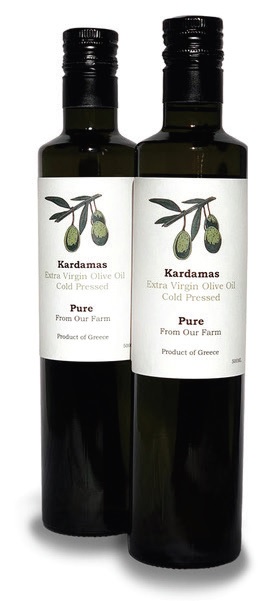
“My mother’s side of the family comes from Greece, and we have strong roots and family connections there,” says Devin. “The family’s farmers, everyone has a plot, and they all know what to do.”
Devin’s kin harvest and crush the olives that become Kardamas Extra Virgin Olive Oil. After his relatives ship the oil to the States, Devin and his small team bottles and sells it. While most of Kardamas’ sales have come through farmers’ markets and online, Devin is planning an expansion of retail sales, some wholesaling, and more e-commerce this year.
“I also think our oil could be a great add-on product for high-end restaurants that want to create authentic Greek dishes with flavorful olive oils,” he says. “The right olive oil brings out the quality of the meal, and people can tell the difference. I’d bet that if restaurateurs and chefs had Kardamas in their kitchens, they’d take it home.” In the past couple of years, Devin says, the oil has had a fruity, very flavorful taste, “with a back end that can be a little spicier.”
Olive oils in the U.S. are often diluted or mixed with other oils, Devin says. And “when you find pure oil from California or Oregon, they want $40 a bottle. We provide quality for what I think is a very reasonable price.” A 500 ml bottle of Kardamas extra-virgin olive oil retails for $32.95; 250 ml sells for $17.95 on the company’s site. Kardamas also offers sea salt and oregano imported from Greece, and Devin says he plans to expand into flavored olive oils and other products.
The company uses “somewhat traditional methods” in olive oil production, Devin says. Oil is extracted through cold-pressing, usually within hours of picking the olives. “The olives get picked in November and December. We usually like to get the oil on a boat in January and have it in hand by March or April,” he explains. Devin and his team package the oil themselves in dark green bottles “to protect the product from sunlight,” he says. “We produce all the labels and caps here, too.”
Next for Devin and his olive oils: More retail accounts in Westchester and Long Island in New York, along with New York City. “COVID has held us back a little,” he says. “We can’t do food demos at supermarkets. When you just see the bottles, it’s hard to differentiate. People have to taste our oil.”
ARISTON
Anastasios and Angelo Doukas took their first stab at the olive oil import business back in 1979, just three years after the brothers immigrated from Messinia, Greece, in the Peloponnese.
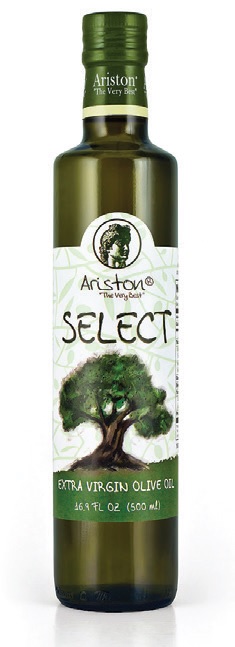
“There was no awareness about olive oil at the time,” says Anastasios, who embarked on the mission because he couldn’t stomach the olive oils that were on the market at the time. The dream of that ill-fated venture however, refused to die. Eighteen years later, almost on a lark, he invested $300 (the price of passing some oil he was bringing back from Greece through U.S. Customs) and went around to restaurants and markets handing out samples. With almost every sample he gave out, he would win an order. And so Ariston was born.
Today, the brothers (along with a small gaggle of their grown children and their spouses) are distributing their brand to places that include the Midwest, California, Alaska, Hawaii, and the Northeast in the United States, as well as Germany, Canada, and the Balkans. The company recently started shipping to customers in South Korea, Japan, and Australia.
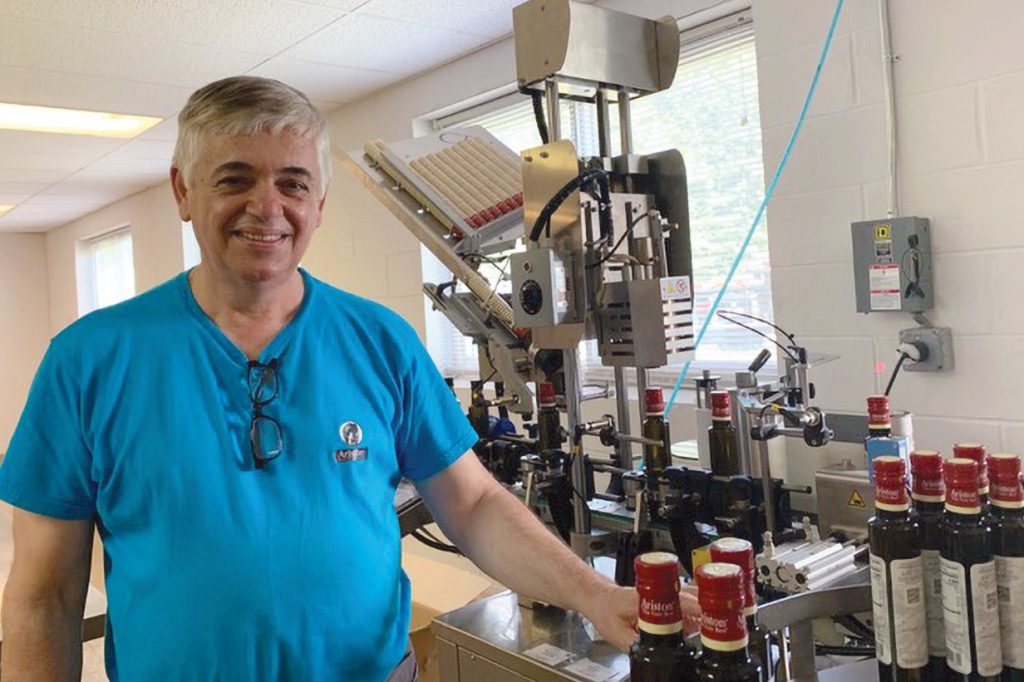
ACCORDING TO ANASTASIOS, ARISTON WAS THE FIRST TO OFFER A “REFILL AND SAVE” MODEL FOR OLIVE OIL SALES.
The olive oil is produced by local growers and cooperatives in the village of Gargalianoi in Messinia, Greece, an area that hugs the southwestern section of Greece’s southern peninsula, before being brought to Ariston’s facility in Bloomfield, CT, where it is packaged and shipped out.
“Most of our business is with retail stores,” says Anastasios, although the company supplies several restaurants as well. “You can find our olive oil and other products in boutique markets as well as some of the larger stores,” he adds.
The Ariston line includes about a dozen different olive oil infusion blends, including blood orange, fig, rosemary, thyme, curry, chocolate, and saffron. Building on its acceptance and success into the market, the company is importing other fine agricultural products from Messinia, including spoon sweets. In a partnership with a small company in Modena, Italy, it has also branded a line of balsamic vinegars (many infused as well).
In addition to having the vision of importing amazing extra-virgin Greek olive oil into the country long before it became fashionable, the brothers have a number of innovations under their belt. According to Anastasios, Ariston was the first to offer a “refill and save” model for olive oil sales—those beautiful stainless steel olive oil dispensers that allow customers to pay for refills. And now the company is beginning to roll out its newest innovation: a machine that dispenses custom-blended dressings from an array of Ariston bases. For example, want a fig-infused vinaigrette? Choose the fig-infused EVOO in the concentration you prefer, and blend it with one of the company’s many balsamic vinegars. The user can specify exactly how much of each ingredient ends up in the final blend. And because the machine is tied to the internet, the user can find a recipe in the company’s databanks and have it emailed directly to their inbox. And in this way, Ariston is taking an ancient foodstuff and bringing it into the Information Age.

